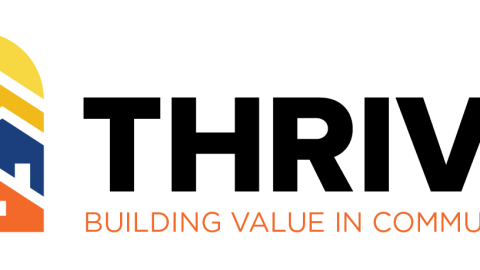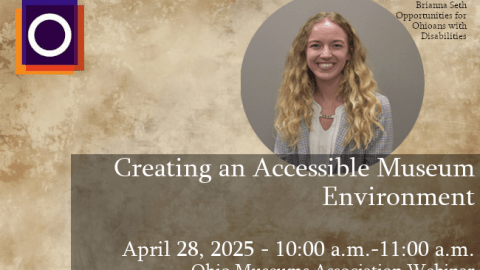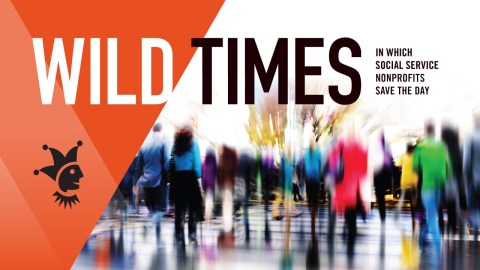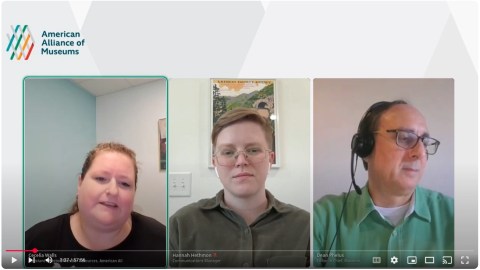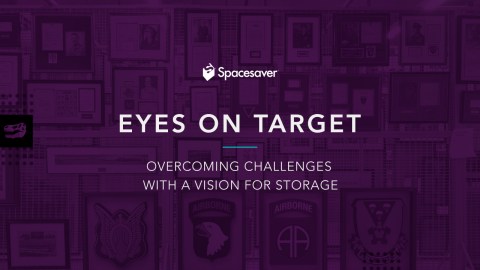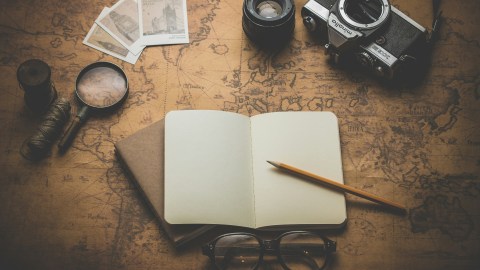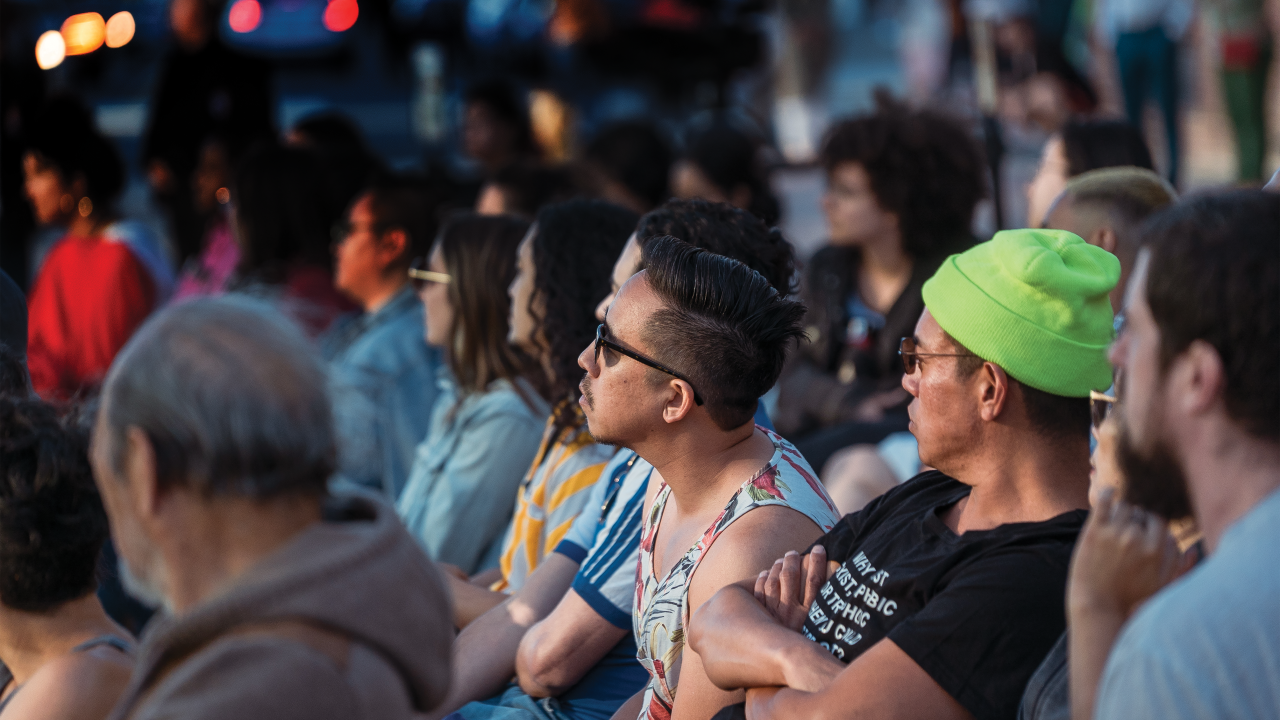
The Japanese American National Museum’s Democracy Center promotes unity among people of all backgrounds.
This article originally appeared in Museum magazine’s July/August 2024 issue, a benefit of AAM membership.
Sixteen. What does that number conjure up for you? Perhaps sweet sixteen—like the party or round in March Madness. Or for the mathletes, 16 is a perfect square. (Pause to Google “perfect square.”) It could be the age at which you got your driver’s license.
Sadly, that number is also the percentage of young people who say they are proud to live in America. The statistic comes from a recent Morning Consult poll, and it tracks with many other surveys over the past couple years that have examined the issue.
Last year at the California Conference for Equality and Justice’s annual convening, I joined a facilitated discussion group that asked, “How does it feel to be multiracial/multicultural in today’s charged political climate?” I was heartened by the many young people in the group; however, the conversation was sobering.
Without exception, the young people in the room said they were ashamed to be American and had no faith in our democracy. They had seen two presidential elections where the winner of the popular vote lost the presidency, and the voice of the people no longer seemed to matter. There was a palpable sense of apathy—bordering on antipathy. When people don’t want to engage, when they feel that there is no point, democracy cannot survive.
This is why I was so proud to join the Japanese American National Museum (JANM) in relaunching the Daniel K. Inouye National Center for the Preservation of Democracy (Democracy Center) this past December. At a time when American democracy is being attacked daily, we need institutions—particularly our cultural institutions—to stand up and speak out to not only spread the truth but also stem the tide of apathy and antipathy.
The Democracy Center, founded in 2000 with the support of Sen. Inouye, embodies his vision to inspire all Americans to engage actively in shaping our democracy. In 2005, JANM completed construction of the Democracy Center as an addition to its Historic Building. The Democracy Center serves as lecture hall, film screening and performance theater, and exhibition space.
After the 2016 elections, there was a renewed call for JANM to speak out on issues, such as the proposed Muslim travel ban and the incarceration and separation of families at the US–Mexico border. It was against this backdrop that JANM began to examine how the Democracy Center could have a greater impact. Feedback from a 2021 survey suggested that tackling current events would make the Democracy Center more relevant than ever, and we’ve taken that advice since relaunching.
Culturally specific institutions need to speak out, not to add to the polarization but to help diffuse it. We do this at the Democracy Center by sharing our stories—our American stories.
Democracy Center Programs
JANM’s mission is to promote understanding and appreciation of America’s ethnic and cultural diversity by sharing the Japanese American experience. The museum sits in a historic location: where 37,000 Japanese Americans in Los Angeles were ordered to report before being taken to one of America’s concentration camps during World War II. Every day when I walk through the museum’s Democracy Plaza, I’m reminded of the families—American families—who boarded buses here and how US democracy failed its people.
Because of this history, JANM also speaks out when diversity, individual dignity, and social justice are undermined, vigilantly sharing hard-fought lessons. Its underlying purpose is to transform lives and create a more just America and, ultimately, a better world. As a program of JANM, the Democracy Center leans on this work. We contemporize the stories, and we look for solutions to the problems facing our democracy. We center the arts in our conversations in ways that other civic institutions don’t or can’t because the arts inspire action, participation, and empathy.
Our arts and culture institutions have a responsibility to uplift our heritages—the diverse stories brought here from around the world—not to replace a dominant culture but to enhance it, strengthen it, and make room for other stories that create a truly unique American canon. When people see themselves reflected in the arts and civic life, they become more engaged and inspired.
In April 2023, before its formal relaunch, the Democracy Center began hosting programs related to current events to gauge interest and build the capacity of the programming staff. One of the first events was a comedy night, “Democracy on the Rocks … with a soda chaser.” A nod to the role comedy has historically played in political discourse, the evening featured comedians from diverse backgrounds along with political improv. Programming can’t be so serious all the time. We were pleased with the turnout and positive feedback, and we are planning another comedy night this summer.
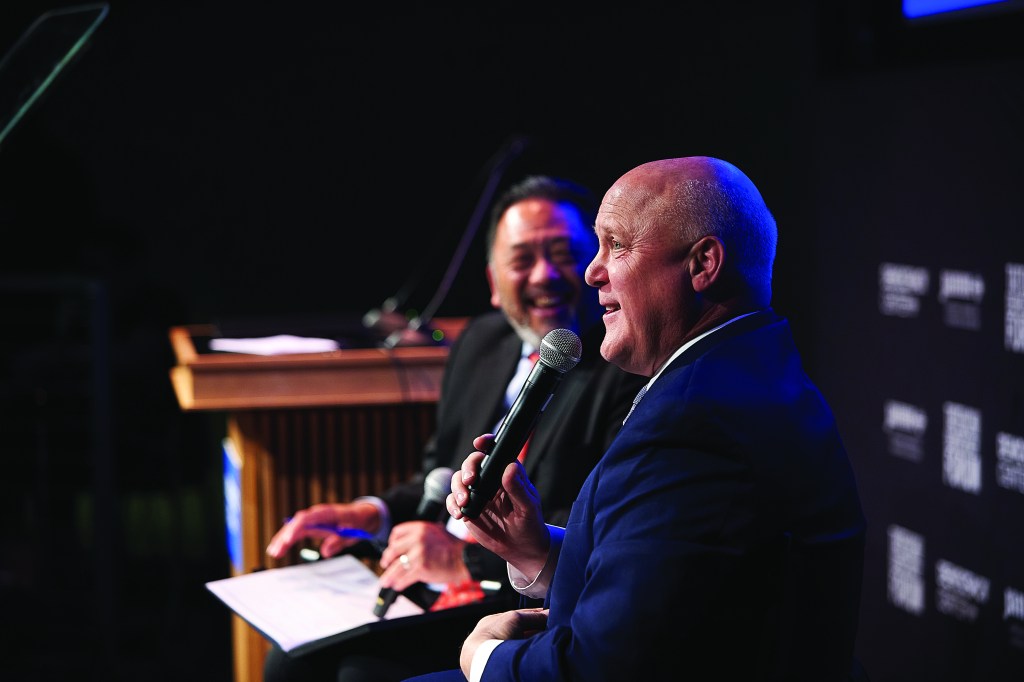
During this time, we also hosted conversations on climate policy, antisemitism, and the history of Japanese American solidarity with the Black Panthers. Through a partnership with Live Talks LA, we hosted authors of books about democracy, including former US Congressman Adam Kinzinger, one of two Republicans who served on the United States House Select Committee on the January 6 Attack, and Harvard University political scientist Daniel Ziblatt.
When the Democracy Center officially relaunched in December 2023, JANM and the Democracy Center worked with our local partners, the Chinese American Museum and La Plaza de Cultura y Artes, to support the Smithsonian’s “Our Shared Future: Reckoning with Our Racial Past” initiative. Programming across the three institutions spanned 17 days and featured a wide variety of experiences, including film screenings, cooking demonstrations, concerts, and exhibitions.
We opened our programming with a symposium on race at the intersection of health, wealth, and the arts. The cross-sector discussion highlighted how important the arts are in these conversations. Attendees could view the Democracy Center’s first exhibition, “The Bias Inside Us,” on loan from the Smithsonian. One of the programs focused on reparations for Black Americans in California. The conversation drew inspiration from JANM’s core exhibition, “Common Ground,” which traces the history of Japanese Americans in the US, including the fight for reparations stemming from the WW II incarceration.
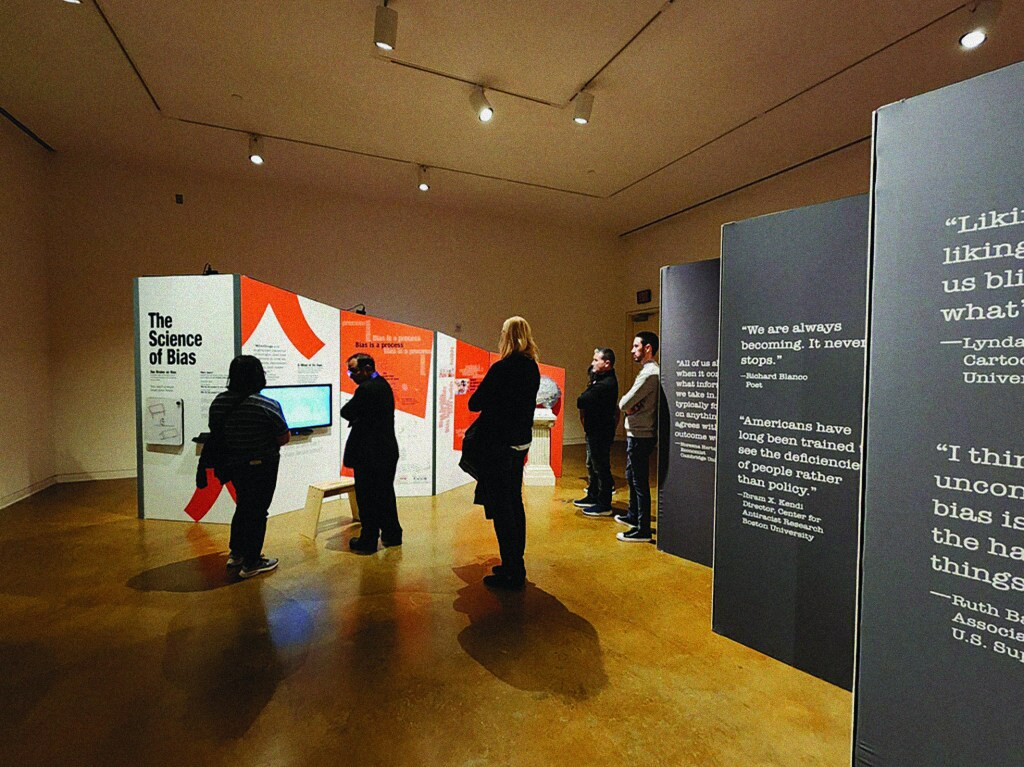
Additionally, we have created three fellowship programs for artists. In “An American Vocabulary: Words to Action,” part of the Artists at Work Fellowship, visual artist Audrey Chan and rapper jason chu collaborated on flash cards that portray figures, events, and practices rooted in community, care, and action. Through these words and images, the artists extend an invitation to participate in a shared vocabulary of Asian American, Native Hawaiian, and Pacific Islander (AANHPI) agency and unity in the fight for justice, healing, and understanding.
The Yamamoto Arts Writers Fellowship supports the work of emerging arts journalists and critics who bring a cultural competency to their work. And the Watanabe Democracy Fellowship will bring a cohort of cross-sector, early to mid-career professionals from Japan to the US to explore issues of democracy.
Fighting Polarization
We recognize that one of the main threats to democracy is the deep polarization currently on display in our country. For many of us, it is hard to reach out to people who feel we do not belong here. But we must find ways to do that. We speak to audiences that feel the same frustration, and we are looking for those answers together.
Early in our programming, we commissioned a dance performance from renowned artist Jay Carlon. “Vectors” drew on the Filipino principle of kapwa, the shared inner self, to create a connective experience. It also offered a nuanced depiction of pervasive power dynamics within people’s lives, communities, and the global collective.
We are also investigating how our communities are specifically impacted by contemporary issues. During the recent “Climates of Inequality Symposium” at JANM, the Democracy Center hosted a screening of the documentary Manzanar, Diverted: When Water Becomes Dust. We also hosted a panel of powerhouse women environmental leaders who spoke about the direct impacts of climate change on communities of color.
As an institution, JANM aims to build empathy in all its offerings, and we are now looking at how we can measure that impact. Creating empathy is central to what we want to accomplish at the Democracy Center.
But our programming is still in its infancy, and we have much to learn. We struggle with finding audiences beyond our usual supporters. How do we create an institution that is seen as the place to have these conversations? How do we get people to come back in person in a post-COVID world? We are certainly not alone in asking these questions. We are open to the sharing of best practices and collaborations with other cultural institutions to help find the answers.
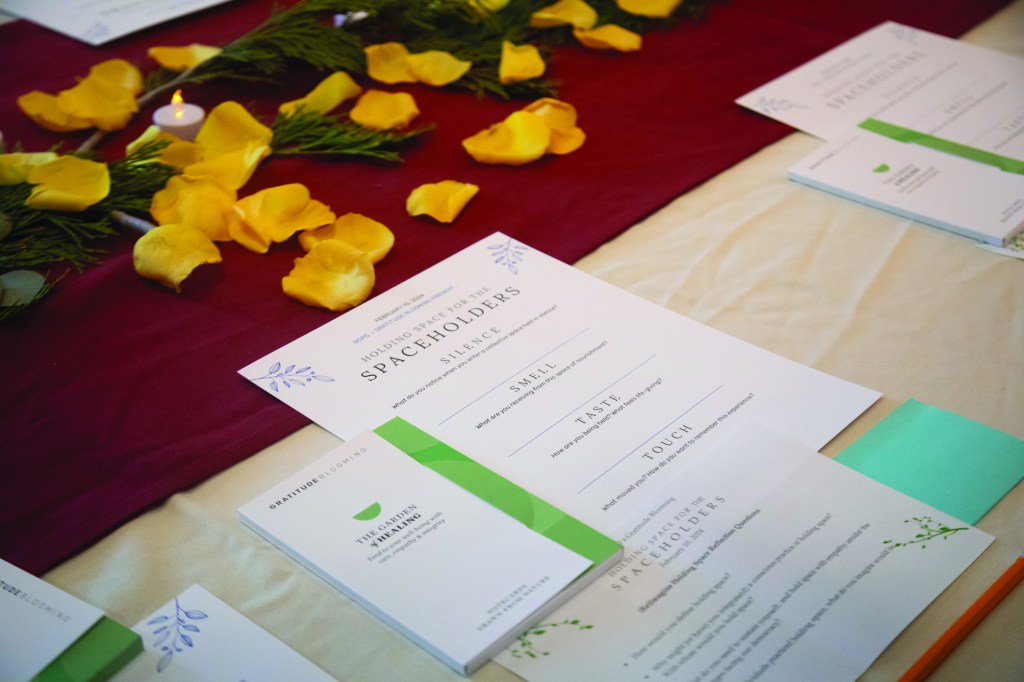
I wrote that JANM sits at a site where democracy failed its people. But it is actually people, through division, prejudice, and apathy, who fail their democracy. However, people also have the power to preserve, protect, and defend democracy. Museums play an important role in inspiring this next generation of leaders to understand what has been and what can be so that no one is ever left behind.
Sidebar
Listen Up
The Democracy Center project I am currently most excited about is our Empathy & Democracy podcast, which is developed in partnership with our friends at the Gratitude Blooming podcast. Gratitude Blooming—among the top 3 percent of all podcasts in the world, according to the Listen Score metric—brings fresh and diverse perspectives to conversations about wellbeing. While being interviewed on that podcast, I had an epiphany: conversations about gratitude are connected to empathy, which is often sorely lacking in today’s conversations about multicultural democracy.
Recorded in front of an audience, Empathy & Democracy openly discusses the struggle for empathy in our fractured society. In our first year of programming, we aired four episodes, recorded quarterly and tied to the change of seasons. They explored the need for empathy in discussions around democracy, how to find hope and personal empowerment in the face of war and political unrest, and creating environments that nurture growth and introspection. The final episode of the season, in partnership with the Los Angeles Asian Pacific Film Festival, examined the role of filmmakers in creating empathy through their work.
At each taping, audience members can engage with a pop-up interactive exhibition—for example, reflection booths created from reconfigured voting booths, where they can explore their own feelings of belonging in our democracy. The episodes have been downloaded more than 3,000 times through the Gratitude Blooming podcast site.
